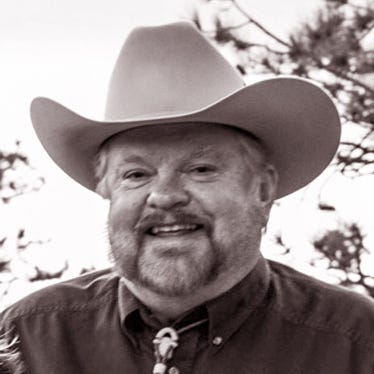R-CALF plans appeal of loss in Beef Checkoff court case
The back and forth legal battle between R-CALF and the Beef Checkoff isn’t dead yet.
April 16, 2020

After losing the Final Opinion in the District Court in Montana, R-CALF announced it will appeal its checkoff case to the Ninth Circuit Court of Appeals. R-CALF sued the Beef Checkoff at the state level, claiming it infringed on First Amendment rights.
To appeal a case to an appellate court, R-CALF’s trial lawyer partners must prove that the lower court erred in law or in fact or made some procedural error. Since much of the court’s Final Opinion was over the same ground as before when a temporary injunction was argued, it would seem to an outsider that procedural errors are not likely.
That would seem to increase the odds that R-CALF’s lawyers will try to show some error in law. We are not lawyers. But R-CALF’s very strident statement seems to be grasping at straws, as they describe American cattlemen’s Beef Checkoff promotions and ads as the speech of “multinational meatpackers.”
R-CALF has accused the Montana Beef Council as having a representative from one of the “largest multinational meat packers” on its board. But the only processor representative on the Beef Council board represents the Montana Meat Processors Association, a group whose board members all operate small plants or locker plants within the state of Montana. So it appears no matter within or without the U.S., big or small, R-CALF’s CEO Bill Bullard detests meat packers, period.
It would seem that anyone who characterizes the “Beef, It’s What’s For Dinner” campaign as “multinational meatpacker” speech definitely is a hammer seeing everything as a nail.
R-CALF opposes beef and cattle imports and does not see much benefit in exporting beef to other countries. Bullard has said he doesn’t believe exports add value to cattle operations. So their latest statement also attacks checkoff funds going to the U.S. Meat Export Federation. The court ruled that the Qualified State Beef Councils (QSBCs) could give checkoff funds to third party organizations that furthered the purposes of the Act and Order that established the current Beef Checkoff, but R-CALF is complaining about that ruling.
They also don’t like checkoff funds going from the QSBCs to the Federation of State Beef Councils, which allows the states to consolidate funding for national campaigns. The Federation is the old Beef Industry Council of the Meat Board and now the promotion division of NCBA. R-CALF’s strident rhetoric contends that the promotion division and the dues-funded policy division is one and the same, despite the disproven allegation that checkoff funds are used for lobbying.
R-CALF opposes NCBA’s positions on issues like mCOOL and marketing freedoms between cattlemen and packers. Their First Amendment attack on the state beef councils has been a tactic, an effort to find some way to injure NCBA, regardless of potential disastrous damage to the entire beef industry’s promotion effort or, in turn, to beef demand.
Judging from R-CALF’s statement and the opinion, the most likely area of dispute will be the nature of the relationship between USDA and the QSBCs. The state beef councils often use materials and adapt campaigns to their state that have already been approved by the Cattlemen’s Beef Board (CBB) and vetted by USDA-AMS personnel. USDA checks through materials to make sure the message is compliant with the Act and the Order that created the national beef checkoff over 30 years ago. That oversight function of USDA had already been ruled by the U.S. Supreme Court (SCOTUS) to make checkoff promotions and ads “government speech,” even though the materials are created and directed by cattlemen’s committees and approved by the CBB.
While the creation of materials and ads has been handled the same way since inception, so that control and direction is handled by the cattlemen and cattlewomen on the CBB, R-CALF decided to attack the checkoffs through the QSBCs. The QSBCs have, over time, been created by cattle people in the various states according to their wishes and state laws. Some of them were incorporated and set up by cattlemen’s associations, making them legally private organizations, belonging to and governed by the cattlemen of that state.
R-CALF’s legal partner, Public Justice, challenged that chain of authority, in effect claiming that some of the QSBCs being private organizations founded and run by cattlemen made it illegal for their checkoff messages to be “government speech.” The Montana District Court initially agreed with R-CALF, ruling the checkoff in violation of the First Amendment to free speech.
In the interim, the QSBCs and USDA entered into Memorandums of Understanding (MOU) basically spelling out in more detail the same procedures and same oversight that had always been in place. The Final Opinion from the court ruled that by putting the MOUs in place with all the beef councils, including those not involved in the lawsuit, USDA and the QSBCs had clarified and satisfied the requirements for “government speech” and ruled in favor of the checkoff.
We’ll know, if and when R-CALF’s Public Justice partners file an appeal, what grounds they will settle on. Public Justice, funded by activist class action trial lawyers, partially staffed by former HSUS employees, has its own “Food Project.” That campaign is devoted to fighting what it claims are “factory farms,” the “handful of companies” that have taken over our “industrial” food systems, pushed out independent farmers and ranchers and damaged our climate and water for profit.
In the meantime, R-CALF and these legal partners disparage the checkoff and the cattlemen and cattlewomen who devote time and effort for beef promotion, research and education as “corrupt.” They also are claiming that the checkoff’s programs only benefit a “handful of corporations,” rather than the hundreds of thousands of cattlemen and all the other people involved in the beef production chain.
R-CALF and Public Justice have 30 days from March 27 to file their appeal.
Steve Dittmer is a longtime beef industry commentator and executive vice president of the Agribusiness Freedom Foundation.
About the Author(s)
You May Also Like




.png?width=300&auto=webp&quality=80&disable=upscale)
